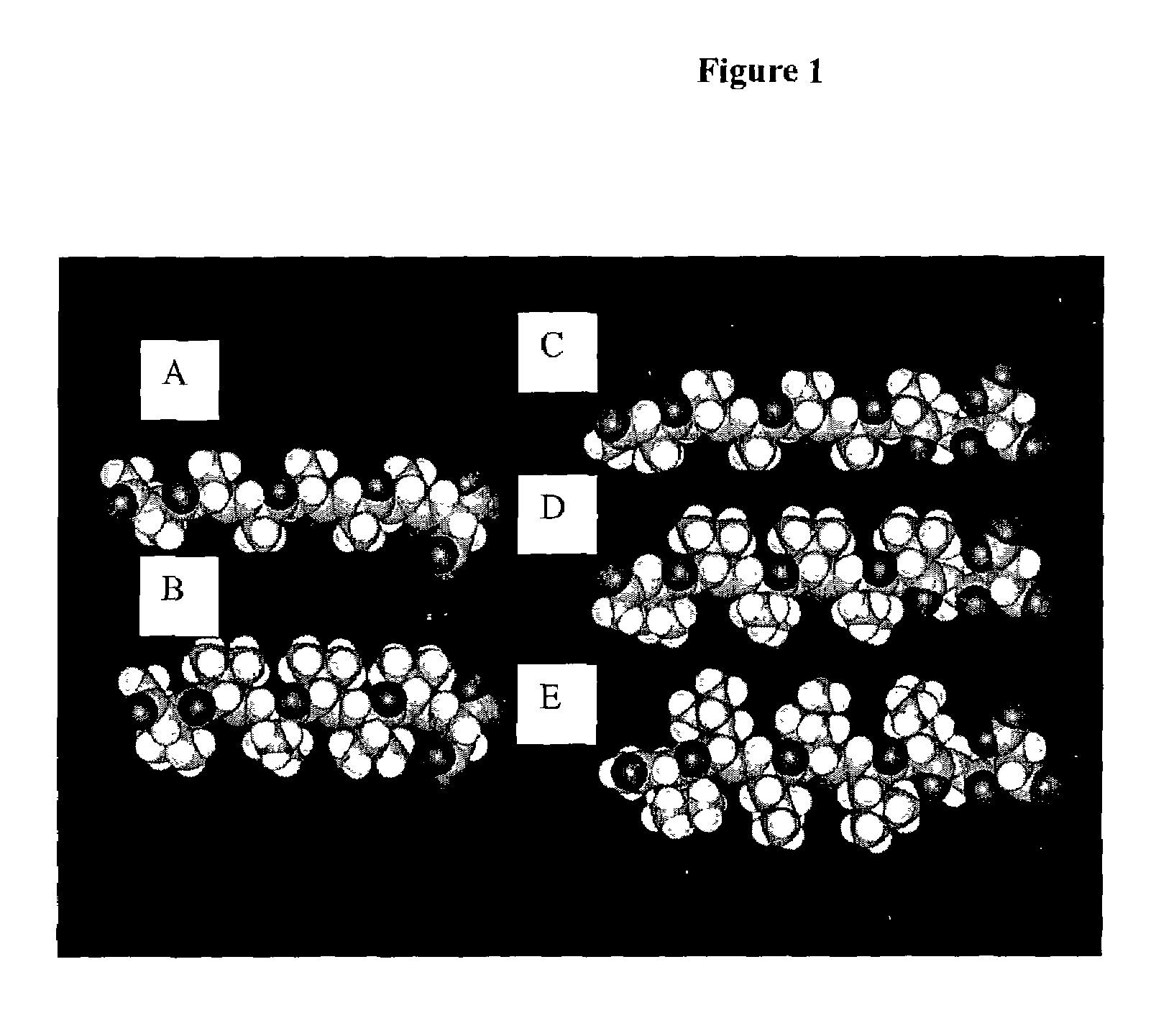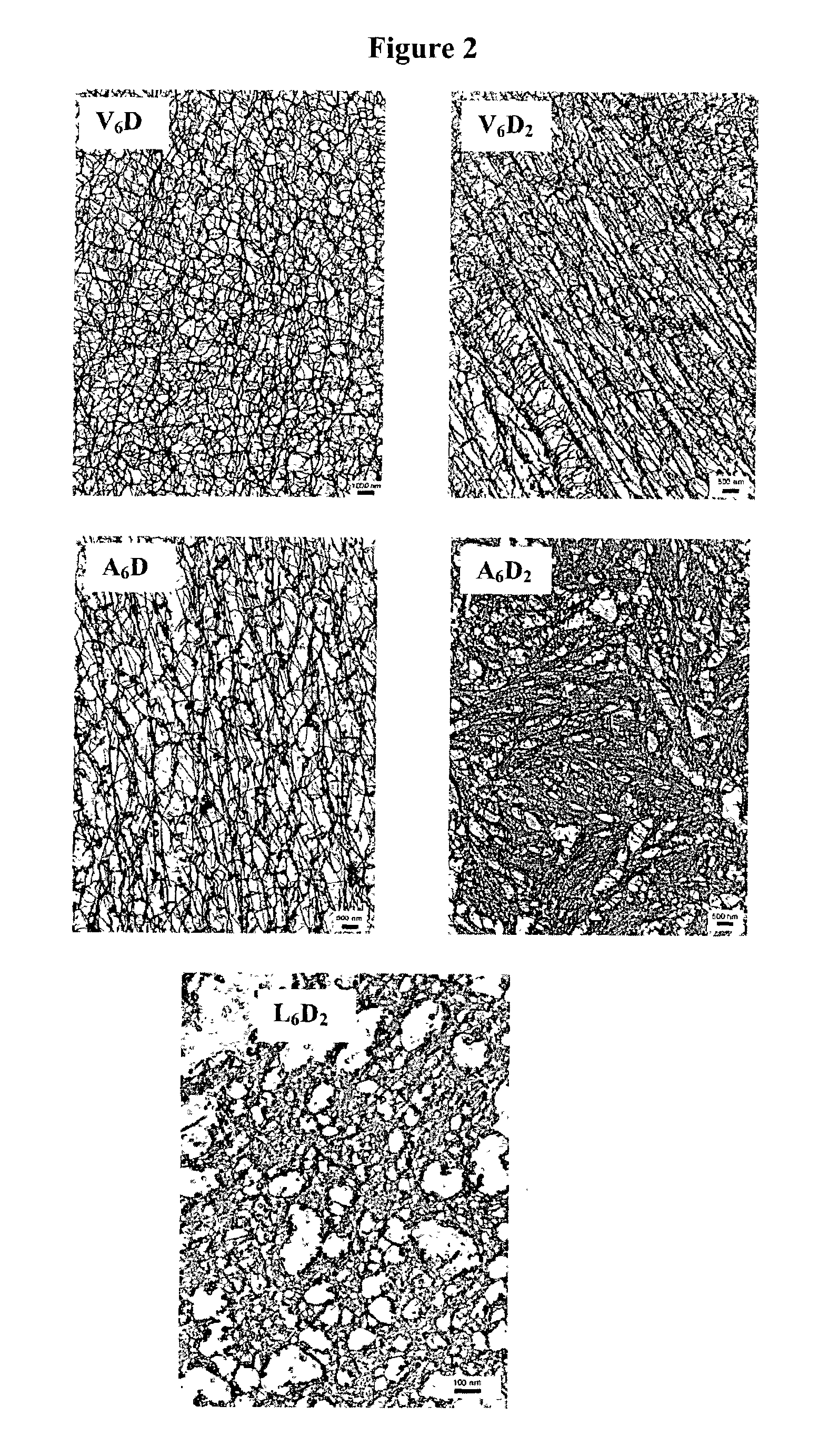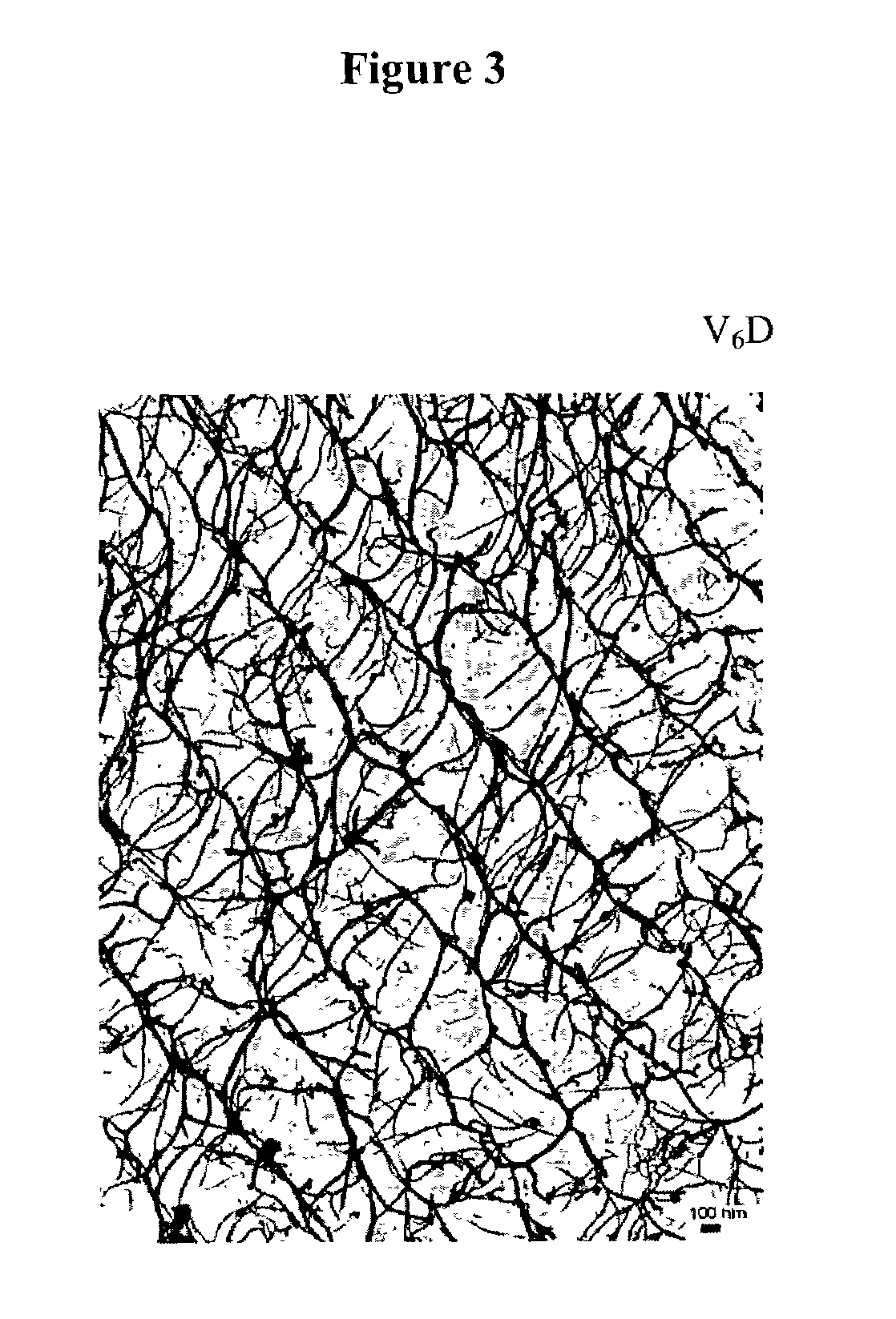Surfactant peptide nanostructures, and uses thereof
a technology of peptide nanostructures and peptides, which is applied in the direction of peptide sources, peptide/protein ingredients, biocides, etc., can solve the problems of relatively ineffective development of controllable and reproducible liposomal systems for systematic drug delivery systems, and achieve high degree of efficiency and flexibility
- Summary
- Abstract
- Description
- Claims
- Application Information
AI Technical Summary
Benefits of technology
Problems solved by technology
Method used
Image
Examples
Embodiment Construction
[0032]The present invention aims to describe the extraordinary self-assembly behavior of a new type of surfactant-like peptides. This class of peptides has been designed and investigated for their ability to spontaneously self-assemble to form stable nanotubes. These short peptides (7 to 8 amino acids) have a structure very similar to those observed in surfactant molecules with a defined hydrophilic head group constituted of charged amino acids and a lipophilic tail made out of hydrophobic amino acids such as alanine, valine, isoleucine or leucine. As a result, when dispersed in water, the amphiphilic peptides tend to self-assemble in order to isolate the hydrophobic tail from the contact with water. The common feature for this self-assembly is the formation of a polar interface, which separates the hydrocarbon and water regions.
Definitions
[0033]For convenience, certain terms employed in the specification, examples, and appended claims are collected here.
[0034]The amino acids will b...
PUM
| Property | Measurement | Unit |
|---|---|---|
| diameter | aaaaa | aaaaa |
| diameter | aaaaa | aaaaa |
| length | aaaaa | aaaaa |
Abstract
Description
Claims
Application Information
 Login to View More
Login to View More - R&D
- Intellectual Property
- Life Sciences
- Materials
- Tech Scout
- Unparalleled Data Quality
- Higher Quality Content
- 60% Fewer Hallucinations
Browse by: Latest US Patents, China's latest patents, Technical Efficacy Thesaurus, Application Domain, Technology Topic, Popular Technical Reports.
© 2025 PatSnap. All rights reserved.Legal|Privacy policy|Modern Slavery Act Transparency Statement|Sitemap|About US| Contact US: help@patsnap.com



